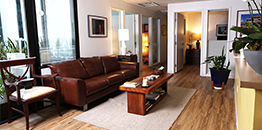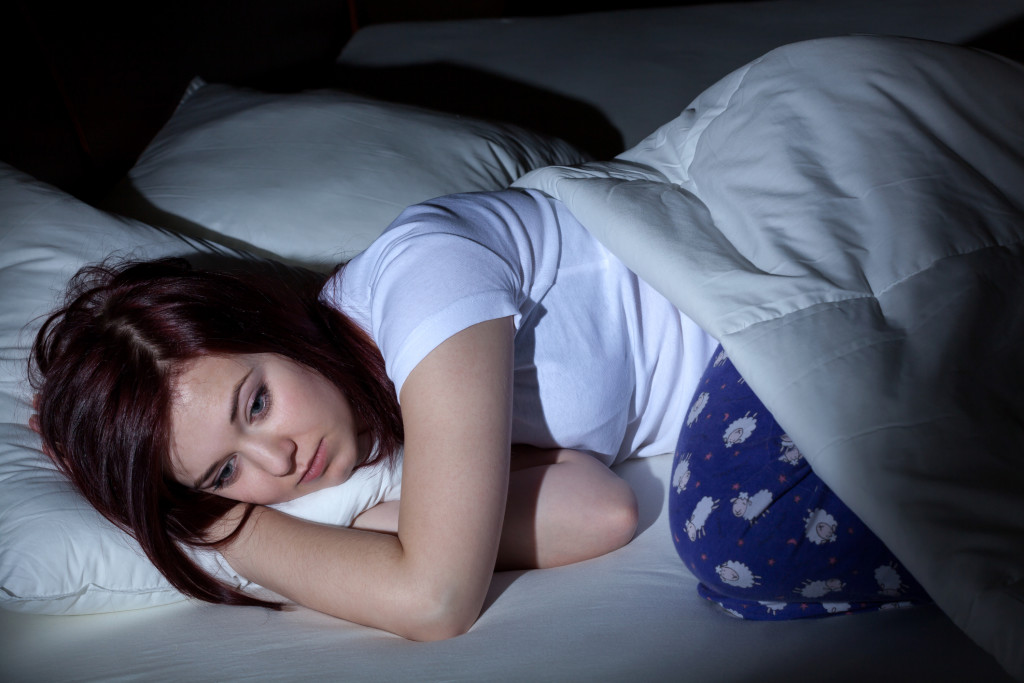For many, sleep does not come easy. We are often stressed, over-worked and are running continuous to-do lists in our minds. More often then not, the 12 o’clock hours sneaks up on us and we begin counting the hours of sleep we could catch if we could just fall asleep right now.
A great deal of the problem is stress, but did you know that the our environment can also have an impact on our ability to fall asleep? Sleep environmentalist, designer, entrepreneur and author of the book Bedrooms That Inspire: Rest, Relaxation & Romance Jennifer Adams, shared these 12 tips to set up your sleep environment and get a good nights rest.
article originally posted on HuffPost Healthy Living
1. Don’t ditch old-fashioned light bulbs just yet.
“We’re all replacing the light bulbs in our homes with LED bulbs because they are more energy efficient and they put out a beautiful quality of light, but the challenge is that they mimic daylight,” Adams told The Huffington Post. “So if you add the LED bulbs to your lamps in your bedroom, it can make it harder to fall asleep. I recommend that everyone keep their bedrooms, especially the bedside lamps, with just a regular, old-fashioned halogen or incandescent light bulb with that soft, warm light. I also like the ones you can dim easily.”
2. But do lose the electronics.
By now we know that our televisions, smartphones and tablets emit a blue light that disrupts our natural melatonin production, meaning they’re a poor fit for a restful bedroom setup. But according to Adams, we need to be wary of alarm clocks, too.
“Getting rid of your alarm clock is a big one, because studies have proven that if you have your alarm clock within eyesight, the light disrupts your sleep,” she said. “There’s also a subliminal stress where you’re continually looking at your clock to see what time it is and how much more time you have to sleep. Even when I’m in a hotel room, I’ll put it on the floor because I don’t want that electricity near my head, or I’ll cover it with a washcloth or hand towel if it’s one that’s fixed into place.”
If you’re not a morning person who naturally rises with the sun, opt for an alarm clock with an adjustable dimming backlight, and place it on the opposite side of the room to keep electronics as far away from your head while sleeping as possible.
3. Control the lighting.
“I love waking up to the sun in the morning, especially right now when the sun is rising around 5:30 a.m. But oftentimes at night, there are so many outside lights that make it hard to fall asleep or stay asleep,” said Adams. “Room-darkening shades really help. And you can be flexible with it. You can have draperies that have layers to them — a sheer one for privacy and light during the day, and a layer that has a blackout lining behind it to block out as much light as possible at night. It really makes a huge difference.”
4. And keep noise in check.
For folks who live in urban environments where ambient noise often acts as a sleep disrupter, or for those who struggle with a snoring partner, Adams recommends testing out ear plugs. But if that’s uncomfortable, she also approves of using a fan or air purifier to create consistent white noise while also improving the quality of the air in your bedroom and keeping it at a comfortable temperature. And if you’re lucky enough to live in a naturally quiet environment, rejoice in the silence that is your bedroom!
5. Make your bed every morning.
“Making the bed gives you a sense of accomplishment right when you wake up, and when you come home at the end of the day, it feels so nice and relaxing to walk past a well-made bed,” said Adams. “It also keeps the dust off of your sleeping surfaces, keeping your bed cleaner. Also, if you have pets at home, it helps keep them on the outside of your bedding rather than on the inside. And it keeps the wrinkles out of the bed, which are abrasive on the skin and make it harder to sleep.”
6. Change your sheets at least once a week.
“There are so many people who I’m surprised don’t clean their sheets at least once a week and have dust mites, which can also disrupt your sleep,” said Adams. “Make sure to clean your bedding frequently — especially if your pets sleep with you.”
When it comes time for that weekly wash cycle, make your life a little easier by considering these five common bedding laundry mistakes and how to best avoid them.
7. When it comes to décor, stick to restful colors and patterns.
While there’s nothing wrong with having a bedroom full of bright colors and bold patterns, it’s important to know that such creative designs aren’t the most conducive to quality sleep.
“If someone is wanting to get a good night’s sleep, I would have them use restful colors and patterns — avoid chaos,” said Adams. “Soft, muted, even heathered or distressed colors are nice. Go with sages, blues, ivories, grays and whites. Those are all more conducive to sleep. And light ombre, simple stripes and soft medallions are really restful patterns.”
8. Keep a notepad nearby.
In lieu of your chirping or buzzing smartphone, keep a pad of paper and a pen on your nightstand for those pesky thoughts that creep up just as you begin to fall asleep and hold your attention for longer than you’d like. According to Adams, many of us experience our most creative time at night, as well as think of things we want to say to others as we settle into that lucid state right before drifting off. Instead of engaging with them, release the thoughts from your mind by jotting them down — and don’t even turn on the light. You might not be able to read your handwriting very well in the morning, but you’ll feel far less distracted from sleep.
9. Stick with subtle fragrances.
“If you have candles or any type of air fresheners in your bedroom, make sure they are soothing and calming fragrances,” said Adams. “Citrus, for example, is going to be more invigorating, so I would use something more like lavender instead. Fragrance is more impactful on your mood and energy than most of us realize.”
10. The cooler, the better.
“A lot of the time, people take a shower or a bath right before they go to bed because it helps them relax, but it raises their body temperature,” said Adams. “And that will make it hard for you to fall asleep. That plays into your sleep environment, because you want to stay cool, having your thermostat set between 67 and 68 degrees. If your body temperature is cooler, it’s easier to not just fall asleep, but stay asleep. That hot shower or hot bath can be counterintuitive. I recommend doing that earlier in the evening and relax sooner.”
11. Remember to replace those pillows… and the mattress.
“So many people who don’t sleep well are allergic to dust, and they don’t realize how dusty their bedrooms really are,” said Adams. “Your mattress and pillows have allergens that get trapped in them and are difficult to ever wash out. A lot of people who have sleep apnea or wake up exhausted every day have told me that once they changed out their mattress and pillows and then got allergy barrier encasements, they started getting a good night’s sleep and woke up feeling really refreshed. If you don’t change out your pillow every two years, it’s just laden with junk inside there. No matter how nice your pillow is, you have to get rid of it. A mattress can last up to 10 years.”
12. Simplify your furniture set.
“Only have pieces in the room that you need for sleep and relaxation: A bed, two nightstands, maybe a bench at the foot of the bed, and maybe a sofa, a chair or a good place to sit,” said Adams. “You don’t need a desk or any exercise equipment. Also avoid reflective things in the bedroom like mirrors, because they can be particularly jarring in the middle of the night.”
If the environmental changes alone do not do the trick, consider Akasha Naturals Sleep EZ and other calming supplements
Source
12 Hacks For The Best Sleep Ever
by Alena Hall
HuffPost Healthy Living









